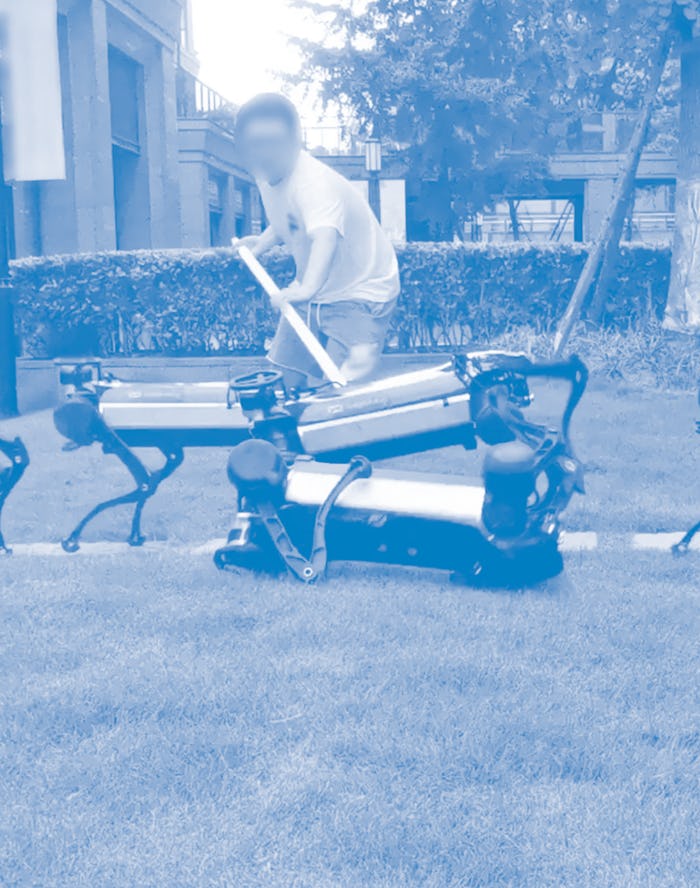And while robots are better than ever at mimicking human locomotion (see this clip of robo-parkour) that doesn't mean they're infallible. In fact, for robots, just like a human learning how to move, it's not a matter of if, but when they take a spill, which is why training them how to recover after a fall is just as important.
There's just one problem: recovery often involves lots of unique scenarios that can be difficult to fully encode into a bot's repertoire ahead of time. That's exactly why researchers from Zhejiang University and the University of Edinburgh have tasked themselves with making software that allows robots to teach themselves on the fly.
In a paper recently published in the journal Science Robotics, Multi-Expert Learning Architecture (MELA) which uses multiple neural networks to compute situations that the AI has not necessarily encountered before.
As noted by Wired, MELA consists of eight separate "expert" algorithms that are trained for different tasks like walking or maintaining balance. Those are all managed by a separate overarching "coach" network that decides which skill to pull upon in any given scenario.
